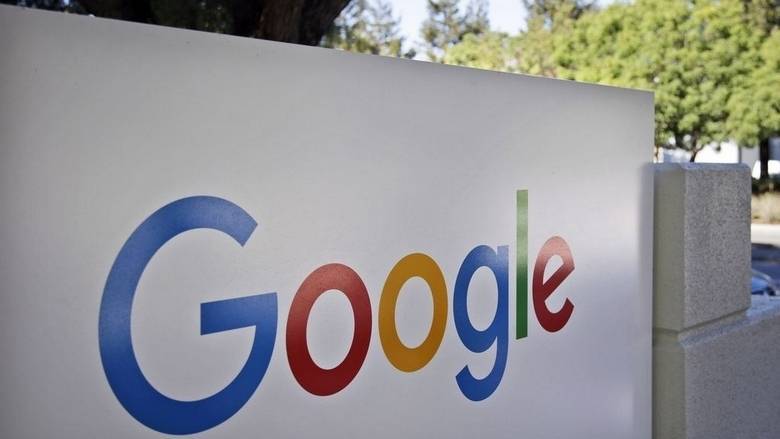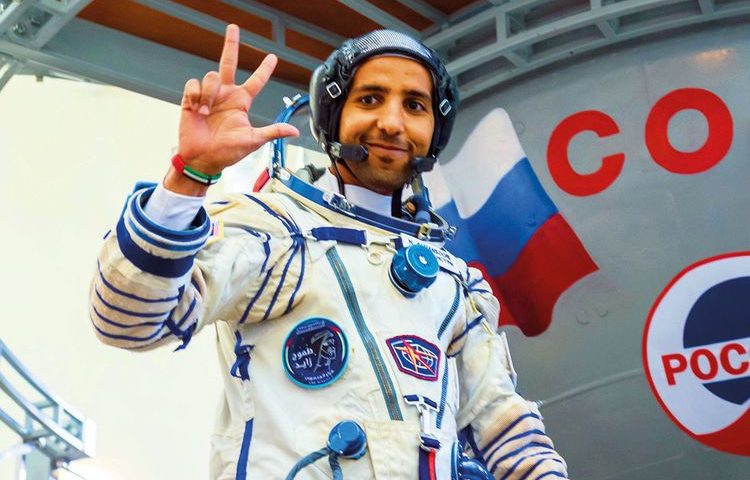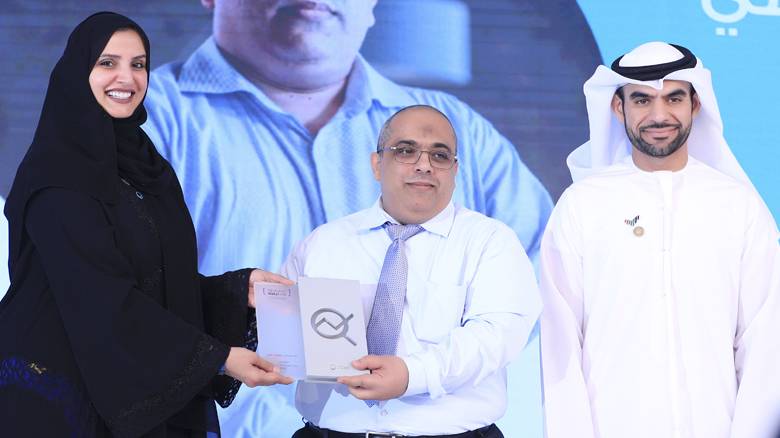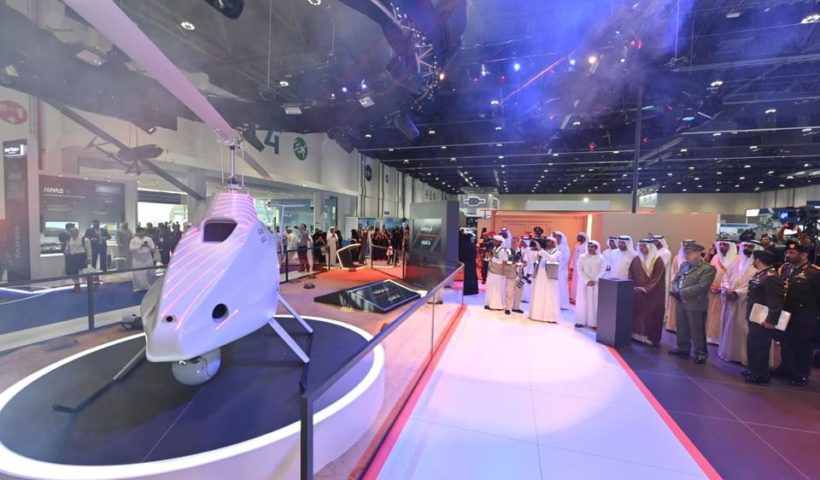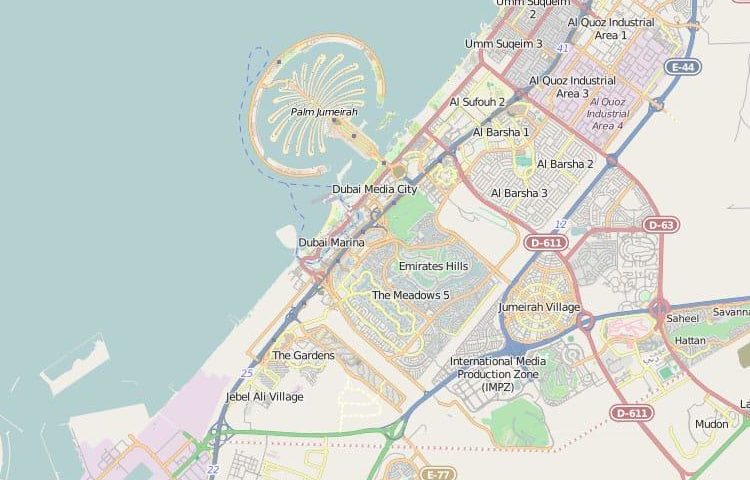Data is a key pillar in the strategy to realise the vision of His Highness Sheikh Mohammed bin Rashid Al Maktoum, Vice-President and Prime Minister of the UAE and Ruler of Dubai, to transform Dubai into one of the world’s smartest cities, said Sheikh Hamdan bin Mohammed bin Rashid Al Maktoum, Crown Prince of Dubai and Chairman of The Executive Council.
Dubai’s ability to enhance the efficiency of its services and facilities through smart solutions is a key indicator of its readiness in executing Sheikh Mohammed’s vision for preparing the country for greater successes over the next 50 years.
“With the technology and digital revolution transforming the world, data management has become a key driver of the new economy. Being a pioneer in implementing advanced data management is a key element in our strategy of leading the new economy taking shape across the world,” said Sheikh Hamdan.
“Investing in data management is critical for Dubai to achieve its vision of becoming the happiest city in the world and enhancing the UAE’s global competitiveness. It also has a big role in increasing the decision making capabilities of government entities and developing policy and strategic initiatives to achieve the highest levels of efficiency.”
Data First, the city’s data challenge is a strategic step in Dubai’s journey towards the future, which requires the city to implement new ‘fourth industrial revolution’ tools and solutions. Sheikh Hamdan said the initiative gauges the real contribution of each entity in Dubai’s digital transformation and called on the Smart Dubai team to further enhance the Dubai Pulse platform to meet the requirements of the next 50 years.
Sheikh Hamdan’s remarks came on the occasion of the announcement of the winners of Data First, The City’s Data Challenge. The challenge recognised entities that have made the most significant contributions to fostering a data ecosystem in Dubai. Participating entities were evaluated against five key criteria: Compliance with the Dubai Data Law (from July 2019 – Jan 2020); participation in Smart Dubai Data workshops (which enhances ecosystem engagement); collaboration in response to data requests from other government and semi-government entities; increase in the availability of data sets on Dubai Pulse by participating in ingestion cycles; and support for a data-driven culture through internal and external workshops and awareness programmes.
Sheikh Hamdan announced the highest scoring teams and entities in Data First, The City’s Data Challenge. Roads & Transport Authority won the Leading Entity in Data Award – Large Entity, while Knowledge and Human Development Authority won the Leading Entity in Data Award – Medium and Central Entity
Dr. Aisha bint Butti bin Bishr, Director General, Smart Dubai, said: “Today, we reap the fruits of our close cooperation with leading government entities across Dubai, who have worked diligently with us to ensure they are in full compliance with the Dubai Data Policies. Our wise leadership has placed high priority on the sector, calling for the establishment and administration of data platforms, populated with data from government and private entities to support the city’s smart-city transformation.”
Smart Dubai launched the six-month-long Data First, The City’s Data Challenge in July 2019, to encourage its data partners to expedite their efforts to collect and share data. The Challenge enabled the Emirate of Dubai to provide more innovative use cases and support smart decision-making at the leadership level, as well as across government agencies. The Data First, The City’s Data Challenge initiative was launched to incentivise government and private entities to multiply their efforts to administer, collect, and share data on the Dubai Pulse platform as part of the larger goal of supporting decision makers and building a strong data-driven society.The Challenge was held over a period of six months, during which the Smart Dubai Department held four workshops to help participating entities accelerate their progress towards realising the award’s criteria. In the first workshop held in August 2019, 52 representatives from 35 entities that accepted the Challenge, were introduced to the criteria of the competition.
Younus Al Nasser, Assistant Director-General of Smart Dubai and CEO of Smart Dubai Data (SDD), said: “Data First, The City’s Data Challenge highlighted the deep understanding government and semi-government entities in Dubai have about the importance of data and its potential to expedite Dubai’s plans to transform into the smartest and happiest city on earth. The winners of the Challenge have exhibited commendable levels of compliance with the Dubai Data Framework and Policies, populating the Dubai Pulse platform with pertinent data – and our journey is just the beginning.”
The UAE is early in the game and has the early mover advantage. Envisioning Smart Dubai and creating platforms like Data Challenge only reiterates UAE’s commitment and long term vision to make better use of data!
Ramprakash Ramamoorthy, product manager at ManageEngine Labs, said: “Data is being rapidly commoditised and marketplaces built around data have been evolving at a rapid pace. Today, data is the key to an entity’s (company/country) success. It doesn’t stop at data collection, but the way you build processes around it, stick to compliance practices and above all, the way you infer decisions over the data and make it actionable matters a lot! A wealth of good data practices can elevate the quality of life and can touch across fields from sanitation to banking and greatly improve global competitiveness!”
Data is the silver bullet to faster growth and will be a competitive advantage in the global arena. More localisation laws will prevail and the west will no longer host the world’s major data centers. Huge investment in UAE data centers means better opportunities and faster growth. It also shows the region’s commitment to emerging tech and how it’s becoming globally competitive.
Technology giant companies recently announced opening data centers in the UAE and they are responding to a huge demand for these services. As more companies move through digital transformation, they need a reliable local data center to host their cloud workload securely. New legislations and governances have helped spread the need for data centers.
Zaid Al Mashari, CEO of Proven Arabia, said: “Data is an essential part of the ecosystem of any smart transformation and this is approach has enabled Dubai to have an advanced rank amongst the global cities. Also, Dubai has implemented the utilisation of data to enhance the offering of smart and efficient services across all sectors in the country. We have had access to data for a very long time, but we were not able to take the insights that data give and turn it into something strategic. Now with artificial intelligence, intelligent automation, and IoT, it is much easier for the public and private sector to utilise data strategically.”

